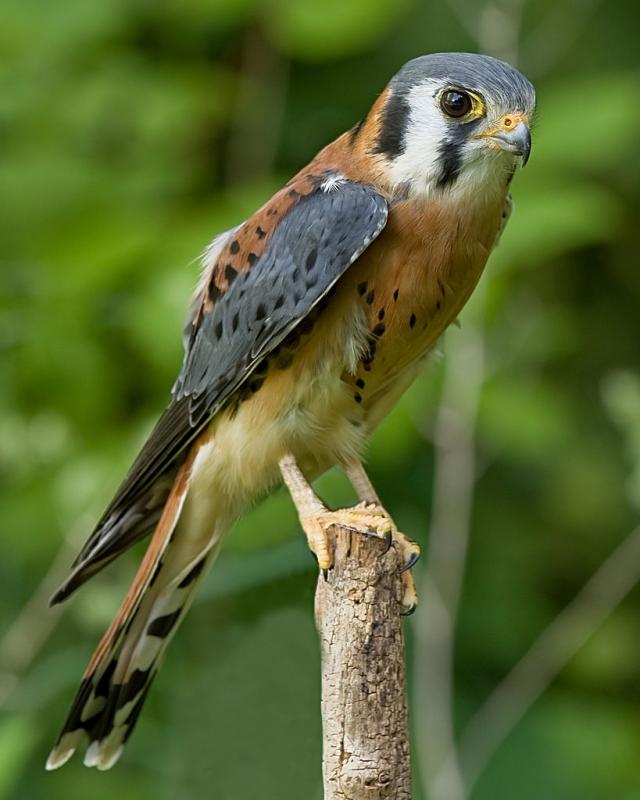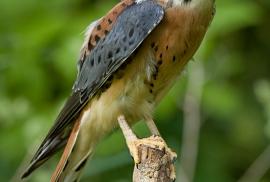Guide to Boreal Birds
Overview
Unlike larger falcons, the "Sparrow Hawk" has adapted to humans and nests even in our largest cities, where it preys chiefly on House Sparrows. In the countryside it takes insects, small birds, and rodents, capturing its prey on the ground rather than in midair like other falcons. The female does most of the incubating and is fed by the male. The male calls as he nears the nest with food; the female flies to him, receives the food, and returns to the nest. After the eggs hatch, the male continues to bring most of the food. The young stay with the adults for a time after fledging, and it is not uncommon to see family parties in late summer.
Description
9-12" (23-30 cm). W. 21" (53 cm). A jay-sized falcon, often seen hovering. Recognizable in all plumages by rusty tail and back. Adult male has slate-blue wings. Female has rusty wings and back, narrow bands on tail. Both sexes have 2 black stripes on face.
Voice
Shrill killy-killy-killy.
Nesting
4 or 5 white or pinkish eggs, blotched with brown, placed without nest or lining in a natural or man-made cavity.
Habitat
Towns and cities, parks, farmlands, and open country.
Range/Migration
Breeds from Alaska and Northwest Territories east through Maritime Provinces and south throughout continent. Winters north to British Columbia, Great Lakes, and New England. Also in American tropics.



